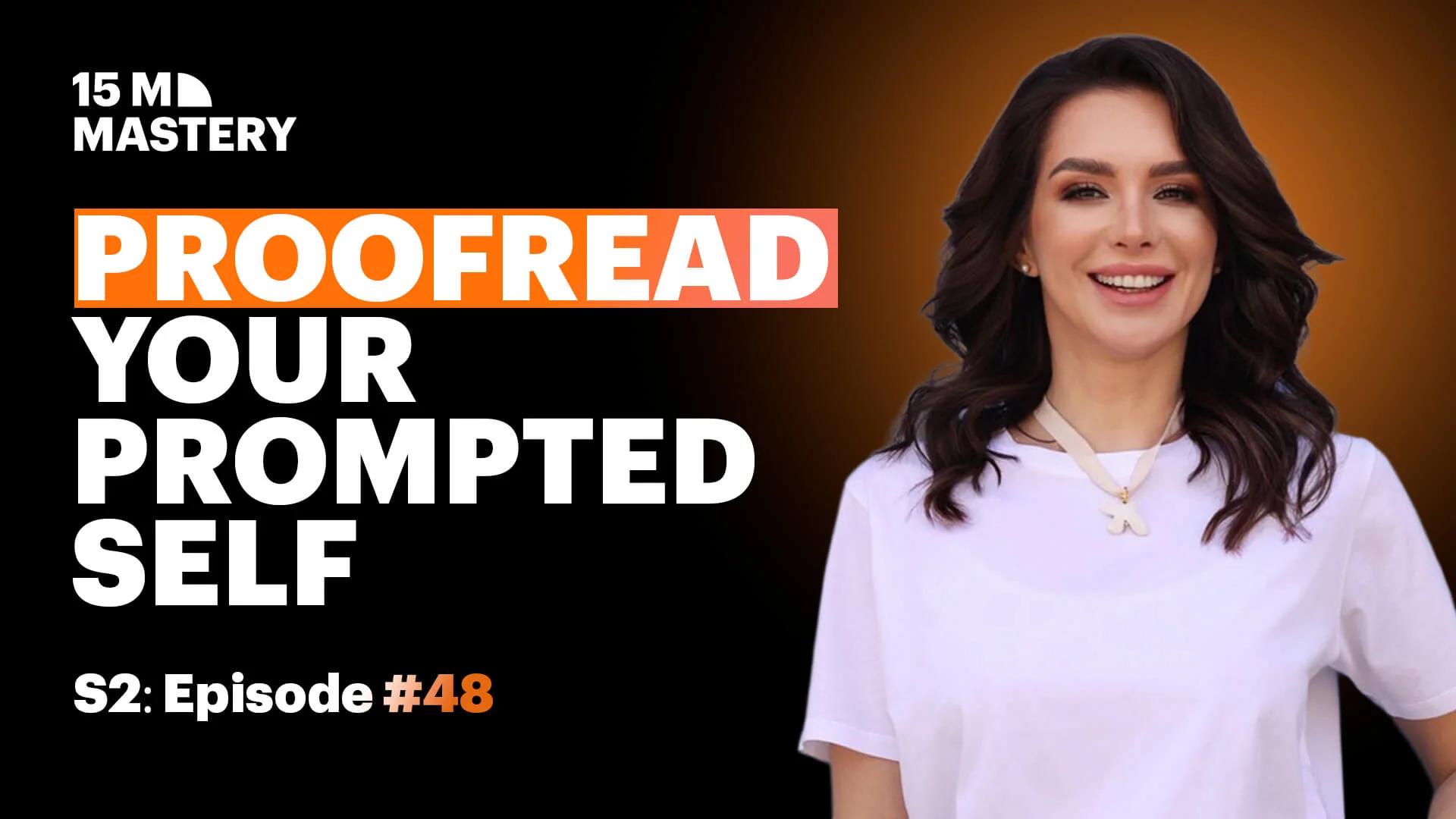Building a Personal Brand That Actually Reflects You: A Framework for iGaming Leaders
Daria Kushnir, Chief Operating Officer at Megafair Games and personal brand mentor, joined 15M Mastery to break down how leaders can create an authentic brand book, and why it matters more than most realise.
A Brand Book That Starts With The Person
For Daria, personal branding isn’t about performance. It’s about reflection.
“Most people build personal brands like they’re marketing a product. But we’re not products,” she says. “We’re people, with values, roles, contradictions. That’s where your authenticity comes from.”
Instead of starting with the audience, Daria recommends going inward. Her brand book framework includes both professional and personal elements:
- Core competencies and niche
- Life roles beyond work (parent, athlete, creator)
- Values and mission
- Unique skills and experiences
- Personal interests and traits
This internal clarity, she argues, becomes the foundation for external consistency, across social media, conference talks, and team communication.
Discovering Your Tone Through Others
One of Daria’s favourite tools is a psychology-based exercise called the Golden Shadow.
“You pick three people you deeply admire and write down everything you like about them,” she explains. “Then we turn the mirror: all those traits you spotted, they’re already in you.”
Why it works? It bypasses the pressure to “create” a brand and instead helps uncover what’s already there. For leaders unsure of how to show up online, this exercise often reveals a tone and narrative that feels both familiar and surprising.
Matching Brand With Market, Without Losing Yourself
Can a bold personality survive in a heavily regulated industry? Daria believes it can, as long as you’re clear about what to show and when.
“Not everything in the brand book gets published,” she says. “You show the parts that make sense for the business. The rest is grounding, it keeps you aligned.”
She encourages leaders to think of their brand as multi-faceted. Different aspects can be expressed depending on the audience, platform, or business phase, but they should all come from the same source.
Your Company’s Voice Should Echo its Founder’s
When asked whether a personal brand should match a company’s brand, Daria is clear: “If you’re the founder, it has to.”
That doesn’t mean every internal department needs full visibility into your personal reflections. Instead, she recommends surfacing the relevant traits—creativity, curiosity, boldness—in comms strategy documents so that HR, marketing, and product teams all stay on-message.
“We even matched our CEO’s tone in his birthday post,” she laughs. “That’s how deep it goes.”
When to Update Your Brand Book
A common question Daria hears from leaders: How do I know when my personal brand needs an update?
Her advice: check in once a year, or sooner, if something big shifts.
“Our values usually don’t change. But our priorities, focus, and roles evolve,” she says. “If you feel the brand doesn’t fit anymore, revise it. It’s a living document.”
And the best part? When the internal brand is strong, the external one doesn’t need to be forced.




